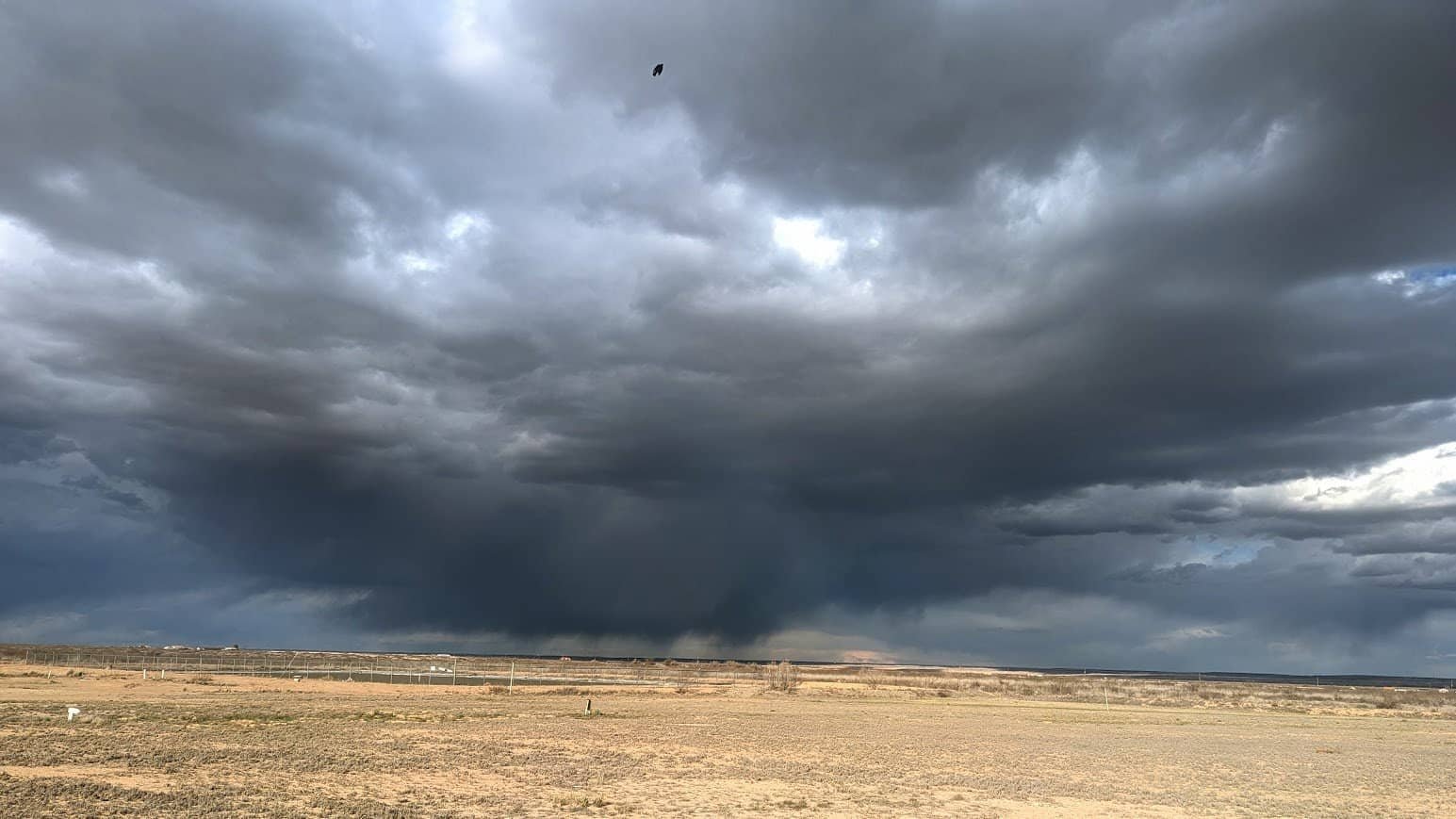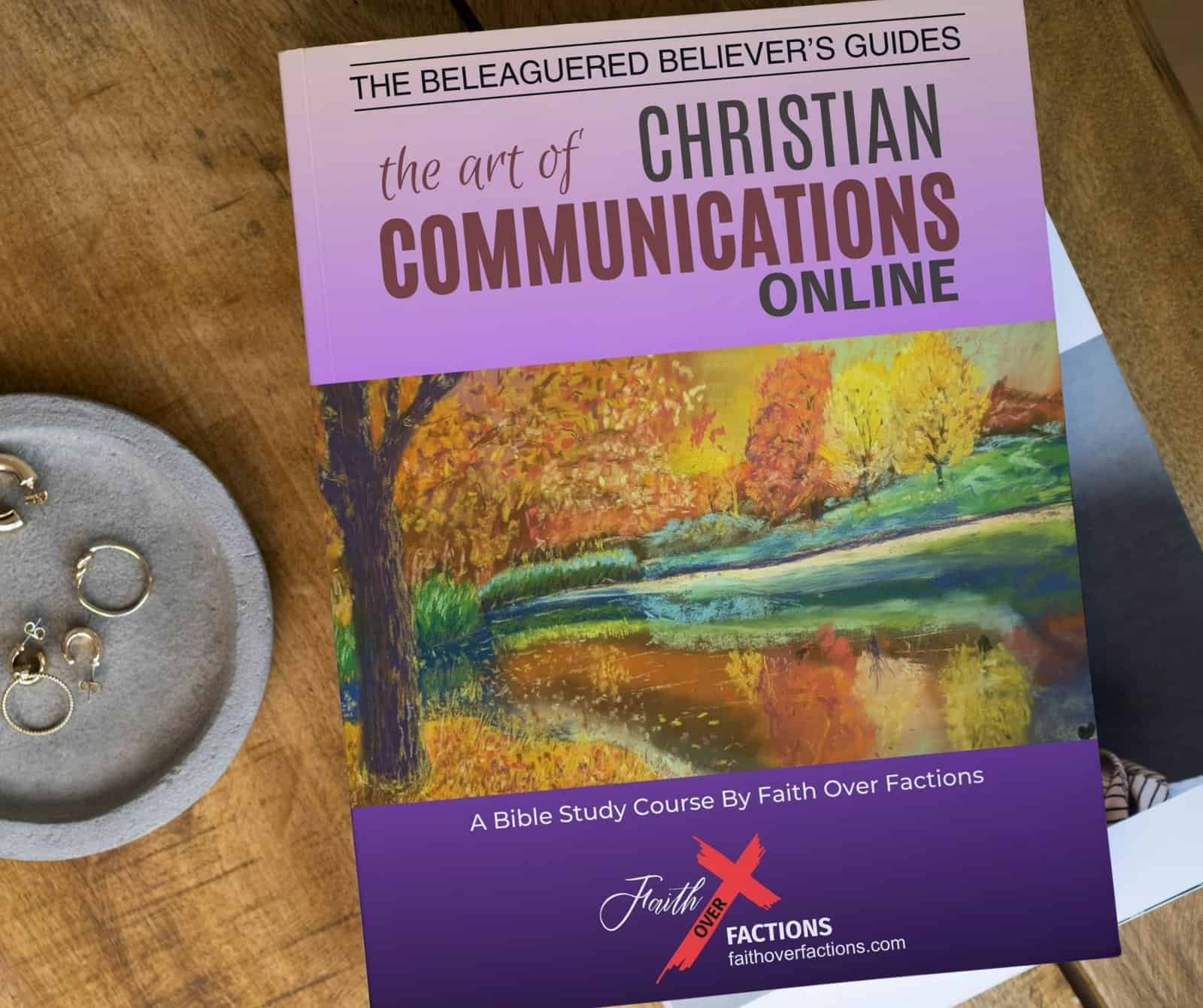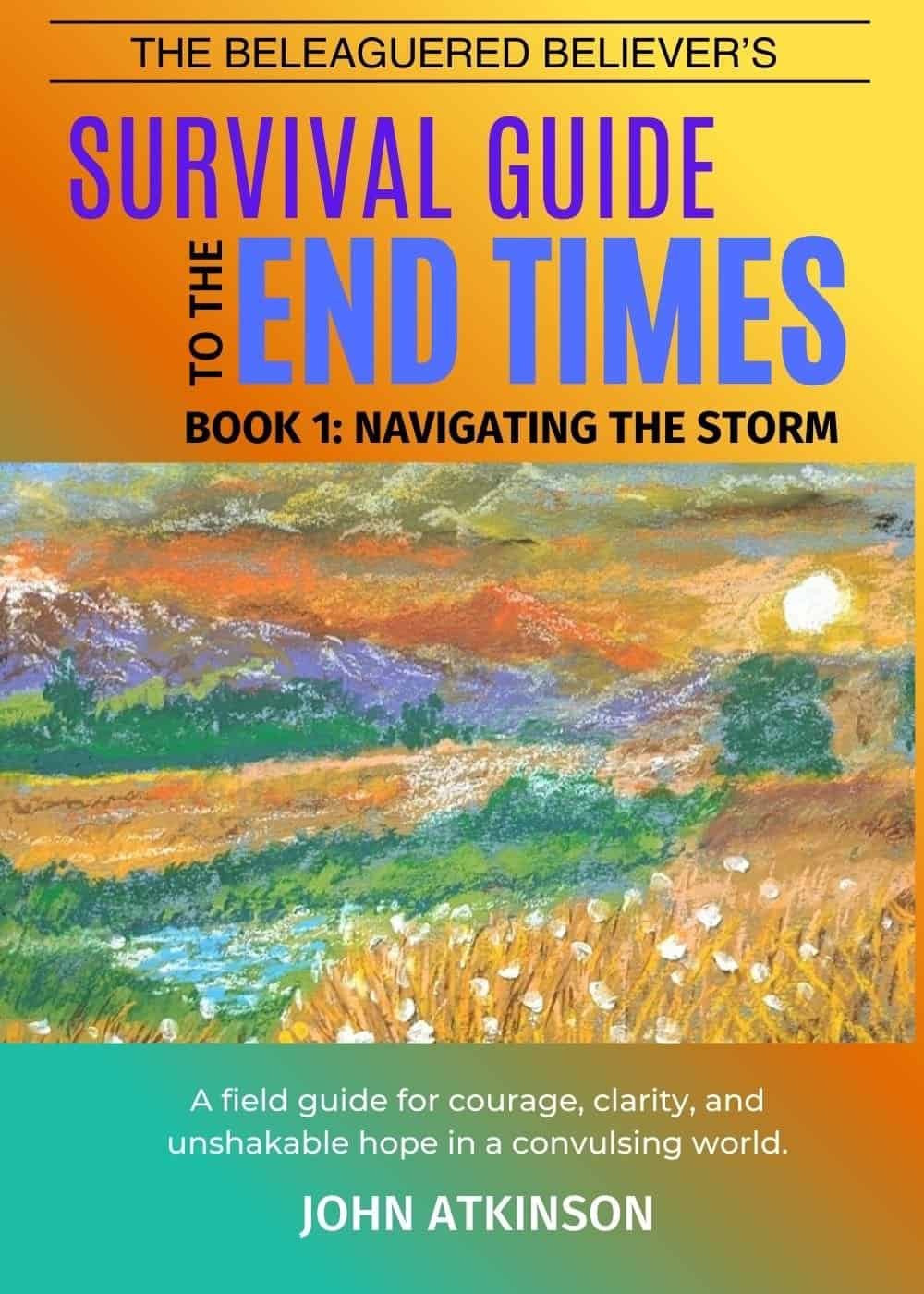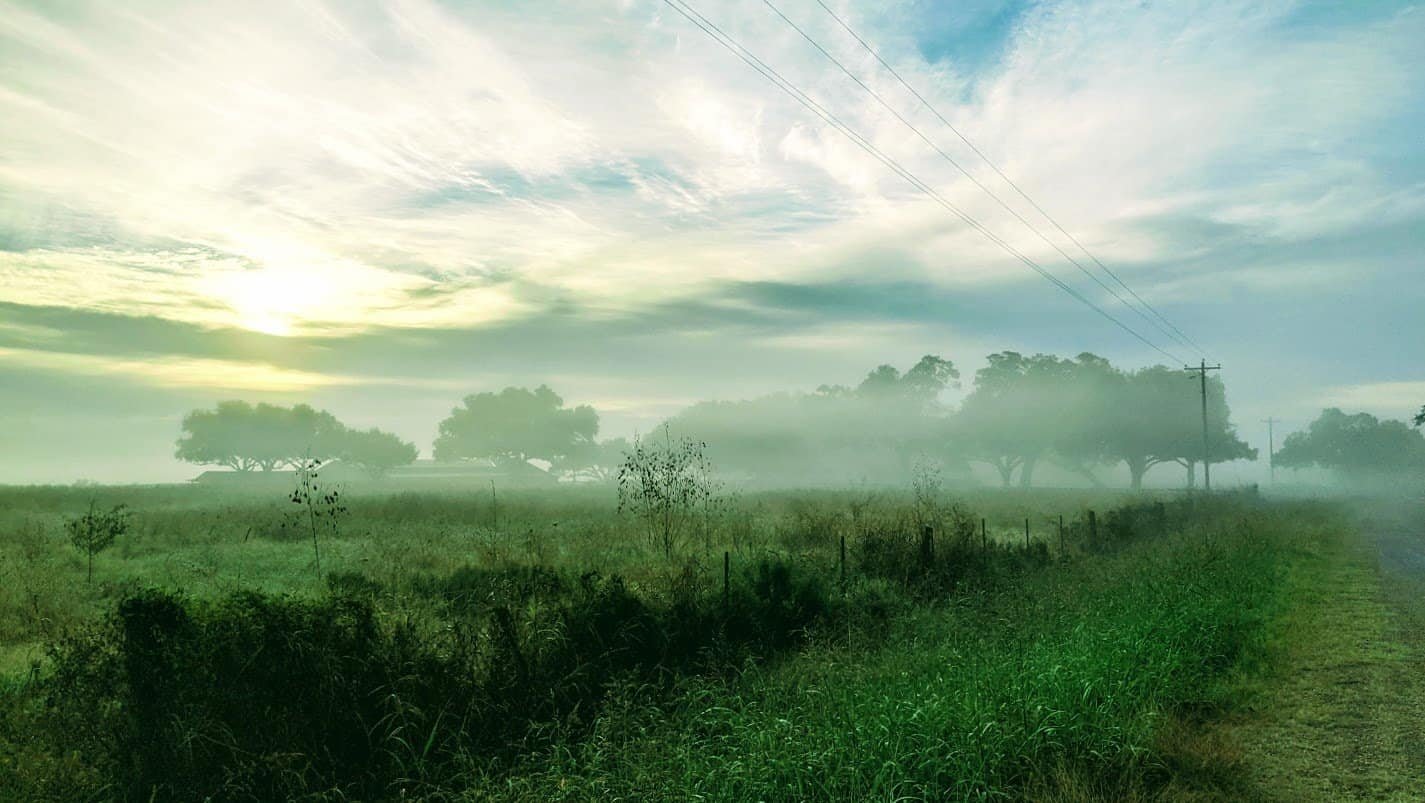
How do we respond when cruelty is legalized? Isaiah 10 and the fatal shooting of Renee Nicole Good
The Question History Keeps Asking
At the time of this writing we all know what happened. It's taken me several days and as many facebook not-sinning-in-anger rants to be able to write from a place of godly sorrow and clarity feeling like I am following the path of Christ instead of the ego of John. So here is a retelling of the story for posterity.
On January 7, 2026, Renee Nicole Good—a 37-year-old mother of three, poet, U.S. citizen and as her right under the constitution activist against the current US Administration's policy towards immigrants—was shot and killed by an ICE agent on a residential street in south Minneapolis. She was blocking the road to alert her neighbors to immigration enforcement operations, blowing a whistle in what had become a regular community warning system. Neighbors protecting one another from state profiling, intimidation and violence. The thing neighbors do.
Federal officials immediately defended the shooting as self-defense, claiming Good "weaponized her vehicle" and committed "domestic terrorism." Minneapolis Mayor Jacob Frey, after reviewing video evidence, rejected this narrative outright: "Having seen the video myself, I want to tell everybody directly, that is bulls**t."
The shooting wasn't random. It occurred during what the Department of Homeland Security called "the largest immigration enforcement operation ever"—2,000 agents deployed to the Twin Cities in what critics describe as "showy sweeps" designed for maximum visibility and intimidation.
History rarely turns on jackboots and prison camps. It turns on Tuesday afternoon operations that feel merely procedural. On legal justifications that sound reasonable in press conferences. It hinges on Christians who stay silent because the cruelty doesn't feel dramatic enough, or the injustice unjust enough to resist—yet.
The pressing question remains: when cruelty is legalized, what will the people of God do? Will they stand up or stay safe?
Anchor in the Word: Isaiah's Warning About Respectable Oppression
Key Scripture:
"What sorrow awaits the unjust judges and those who issue unfair laws. They deprive the poor of justice and deny the rights of the needy among my people. They prey on widows and take advantage of orphans."
—Isaiah 10:1-2 (NLT)
What Isaiah Saw—And What We're Seeing
Isaiah thundered against the rulers of Judah who wrapped oppression in legal respectability. These weren't chaotic outlaws raiding villages. They were officials passing decrees, writing statutes, cloaking exploitation in the appearance of order and national security.
By hiding injustice behind the mask of legality, they lulled society—including religious leaders—into compliance.
God's response was not neutral. Through Isaiah, He declared judgment not just on individuals who devised such laws, but on the entire system that sustained them. Scripture does not separate "lawful" from "righteous." Instead, it insists that justice is measured by God's character, not by government press releases or presidential executive orders.
When Homeland Security Secretary Kristi Noem called a mother trying to drive away from armed agents a "domestic terrorist," she demonstrated exactly what Isaiah condemned: officials using legal language to justify violence against the vulnerable, then expecting compliance because it bears the government's seal.
What We're Facing: When Silence Looks Harmless
It is tempting to believe that as long as cruelty is gradual—as long as the suffering is hidden behind bureaucratic words like "enforcement operation" and "self-defense"—our conscience can stay asleep.
But the prophets, philosophers, poets and priests of every religious and cultural tradition on the planet have stripped away that illusion and gutted its ideology.
Today we see this pattern in multiple forms, each wrapped in legal justification:
- Immigration enforcement that separates families and kills citizens. Renee Good's death is the ninth time since September that ICE agents have opened fire on people in five states. Each shooting is defended as justified. Each comes during operations described as lawful enforcement. Yet mothers die while dropping their children at school.
- Voting laws that surgically disenfranchise minority communities. Restrictions are cloaked in "election integrity" language while specifically targeting the poor, students, and people of color. Legal language masks discriminatory intent.
- Economic systems that protect wealth while criminalizing poverty. Corporate fraud receives regulatory fines; sleeping outside gets you arrested. The law treats these unequally—by design.
- Policing structures that militarize against communities. When 2,000 heavily armed agents descend on one city in what authorities call the "largest operation ever," we're witnessing power displaying itself through intimidation—legal, organized, and devastating to the vulnerable.
Each comes with a government stamp. Each is defended as orderly, necessary, even patriotic. Yet to those who suffer under them, the harm is real and devastating.
Why Christians Are Tempted to Say Nothing
Christians face particular temptations to excuse or ignore these incremental steps:
It is the law; therefore it must be acceptable. But Isaiah exposes that lie: unjust laws are not neutral—they are instruments of violence against the vulnerable. Legality does not equal righteousness.
Peter declared before the Sanhedrin: 'We must obey God rather than human beings' (Acts 5:29). The Hebrew midwives Shiphrah and Puah directly disobeyed Pharaoh's legal order to kill Hebrew babies—and God blessed them for their civil disobedience (Exodus 1:15-21). Daniel violated a law that made prayer to anyone but the king illegal, knowing the consequences (Daniel 6:7-10). Throughout Scripture, God's people are called to subordinate human law to divine justice."
They should have just complied. This was said about Renee Good, about George Floyd (killed one mile away), about every victim of state violence. But 'compliance' becomes impossible when armed agents surround you in unmarked cars, when legal status doesn't protect you, when driving away results in being shot.
Joseph refused to 'comply' with Herod's legal authority, fleeing to Egypt with Mary and Jesus—knowing compliance meant death (Matthew 2:13-16). Meanwhile, Herod's soldiers carried out 'lawful orders,' massacring innocent children. Michal helped David escape through a window when Saul sent agents to kill him (1 Samuel 19:11-12). Obadiah hid 100 prophets in caves, protecting them from Jezebel's legal death warrants (1 Kings 18:4, 13). Scripture repeatedly honors those who helped people evade legal authority that had become murderous or oppressive.
This is just politics—we should stay neutral. But when real people die, when families are torn apart, when power crushes the vulnerable, silence is not neutrality. Silence is complicity.
James declares: 'If anyone knows the good they ought to do and doesn't do it, it is sin for them' (James 4:17). Proverbs commands: 'Speak up for those who cannot speak for themselves... defend the rights of the poor and needy' (Proverbs 31:8-9). Mordecai confronted Esther's temptation to stay silent during genocide: 'Who knows but that you have come to your royal position for such a time as this?' (Esther 4:14). God rejects worship from people who stay 'neutral' on justice (Amos 5:21-24). In Matthew 25, what condemns the goats is not what they did wrong, but what they failed to do—their neutrality when action was required.
The danger of silence is not simply that injustice continues. The greater danger is that silence transforms us. What once felt shocking becomes normal. What once stirred outrage becomes "just the way things are." Hearts harden, consciences dull, and complicity becomes second nature.
Then and Now: The German Church's Warning for American Christians
The Pattern of Incremental Normalization
In 1934-35 Germany, authoritarianism unfolded with chilling subtlety—not through immediate atrocities, but through respectable legal adjustments.
After Hitler became Chancellor, the Reichstag passed laws that looked like technical requirements on paper. Professional associations required loyalty oaths. Teachers swore allegiance. Courts reinterpreted old laws to fit new ideology.
The Nuremberg Laws of 1935 weren't death camps—not yet. They were "legal definitions" of who counted as a citizen and who didn't. They prohibited intermarriage. They stripped Jewish people of public roles. Many Christians did not object. After all, the laws were "polite"—written in legal terms, justified with appeals to tradition and national purity, even cloaked in religious language.
What followed is well known. Step by step, the normalization of exclusion became persecution. Persecution became atrocity. And the church's silence provided moral cover for each incremental step.
Today's Disturbing Echoes
We do not live in 1930s Germany—the context differs profoundly, and comparisons must be made carefully. But the pattern of incremental normalization is disturbingly familiar:
- Laws passed in the name of "election integrity" that surgically target the poor and minorities
- Refugees labeled as threats to "our way of life" rather than neighbors to be loved
- Surveillance expanded in the name of safety, eroding privacy and freedom
- A mother killed while protecting neighbors, immediately labeled a "terrorist" by government officials
- Political leaders framing opponents not as rivals to debate, but as enemies to destroy
- And once again, many Christians providing cover, blessing these moves as patriotic, moral, or even biblical
When Secretary Noem described Renee Good's actions—blocking a street and blowing a whistle to warn neighbors—as "domestic terrorism," she demonstrated how easily governments apply loaded terms to justify violence. This is the language of dehumanization wrapped in official statements.
When Christians stay silent in response, or worse, defend such actions as "law and order," we repeat the German church's failure.
Theological Truth in Plain Language: What Scripture Actually Demands
God's Justice Transcends Legality
Scripture teaches that God's justice transcends legality. As Isaiah declared, law itself can become an instrument of sin. Romans 13—often misused to demand unquestioning obedience to government—actually reminds believers that rulers are accountable to God's standard of good, not their own interests.
Paul wrote Romans 13 while living under Nero. His point wasn't that governments deserve blind obedience, but that governmental authority exists to promote good and restrain evil. When government inverts this purpose—when it becomes the source of evil rather than its restraint—Christian obedience looks different.
Bonhoeffer's Warning Still Speaks
Dietrich Bonhoeffer, who watched German Christians bless Hitler's rise, wrote words that pierce through every excuse we might make for inaction:
"Silence in the face of evil is itself evil. Not to speak is to speak. Not to act is to act."
The gospel is not compatible with authoritarianism, no matter how respectable it looks. Jesus did not cozy up to the powers of His age; He exposed them. His kingdom does not advance by coercion but by sacrificial love. When Christians trade that love for comfort, power, or cultural influence, they cease to follow Christ and begin to follow Caesar.
Three Reasons Christian Complicity is So Tempting
Fear of Loss
Many believers stay silent out of fear—fear of losing status, friendships, cultural influence, or safety. In Germany, pastors feared losing their pulpits. Today, Christians may fear losing political power or being labeled as "leftists" or "troublemakers."
The Lure of Respectability
Authoritarian steps are often cloaked in "respectability." They appeal to law, order, morality, tradition, or national security. To resist feels disruptive. To accept feels safe, even noble. When government officials use phrases like "largest enforcement operation ever," it sounds impressive, not threatening—until your neighbor dies.
The Hope It Will Pass
Perhaps most tempting is the belief that "this too shall pass." That the injustice is temporary. That things will correct themselves. But history shows otherwise: what begins as a small step calcifies into a permanent structure—unless it is resisted early.
Practical Moves of Faith: What Beleaguered Believers Can Do
These steps are for Christians who refuse to choose between tribal camps—who want biblical faithfulness without partisan capture.
1. Name the Step You See
Authoritarian creep thrives in vagueness. Break its power by naming the steps clearly.
Ask yourself: What law, policy, or practice troubles my conscience right now? Write it down. Speak it aloud. Be specific.
Example: "The Department of Homeland Security deployed 2,000 heavily armed agents to one American city, resulting in the death of a U.S. citizen who was simply warning her neighbors. Officials immediately defended this killing with loaded language designed to dehumanize the victim."
Naming injustice is the first step in resisting it.
2. Return to the Prophets
Read Isaiah 10 slowly. Let the words sink in: "Woe to those who issue unfair laws."
Ask: Where are unfair laws crushing the poor today? Who benefits from these systems? Who suffers under them?
Don't spiritualize the text. Isaiah wasn't speaking metaphorically. He was addressing real laws that harmed real people. So must we.
3. Refuse to Numb Your Conscience
When cruelty repeats, it dulls our senses. Resist that numbness.
Each story of suffering represents a person God loves—someone made in His image. Renee Good was a poet, a mother of three, someone her own mother described as "one of the kindest people I've ever known." She was driving home after dropping her six-year-old at school.
Pray for tenderness of heart. Let compassion fuel endurance. When you're tempted to scroll past another story of suffering, stop. Read it. Remember the person's name.
4. Stand with the Vulnerable
Take tangible action rooted in Micah 6:8—do justice, love mercy, walk humbly:
- Support ministries serving immigrants and asylum seekers
- Donate to legal aid organizations defending the poor and immigrants
- Participate in marches and protests such as "No Kings" designed to resist the rule of tyranny and oligarchy
- Show up at city council meetings when policies affect the vulnerable
- Speak to neighbors—build relationships across difference
- Use your platform (however small) to amplify voices being silenced
- Refuse to let the vulnerable suffer in silence while you remain comfortable
5. Anchor in Prayer
Pray daily: "Lord, show me where silence tempts me, and give me courage to act."
Prayer is not a retreat from responsibility—it is the furnace where courage is forged. Bring your fears, your questions, your exhaustion to God. Ask for wisdom. Ask for strength. Ask for the ability to love your enemies while resisting their evil actions.
Prayer reminds us we're not alone in this work. The Spirit intercedes. The Father sees. The Son has already overcome.
More Light for the Journey: Supporting Scriptures
Micah 6:8 (NLT)
"O people, the Lord has told you what is good, and this is what he requires of you: to do what is right, to love mercy, and to walk humbly with your God."
→ A direct challenge to laws that deny mercy and crush the vulnerable.
James 2:1 (NLT)
"How can you claim to have faith in our glorious Lord Jesus Christ if you favor some people over others?"
→ Complicity in discrimination is incompatible with faith in Jesus.
Romans 12:2 (NLT)
"Don't copy the behavior and customs of this world, but let God transform you into a new person by changing the way you think."
→ Resisting normalization is part of transformation. Don't let what is shocking become acceptable.
Ephesians 5:11 (NLT)
"Take no part in the worthless deeds of evil and darkness; instead, expose them."
→ Silence is complicity; exposure is obedience. We cannot remain neutral.
Proverbs 31:8-9 (NLT)
"Speak up for those who cannot speak for themselves; ensure justice for those being crushed. Yes, speak up for the poor and helpless, and see that they get justice."
→ Advocacy is a biblical mandate, not a political option or personal preference.
Let's Walk This Out Together: A Call to Faithful Witness
Incremental authoritarianism counts on the passivity of good people. It thrives on small steps unnoticed, on polite silence from religious communities, on Christians choosing comfort over conscience.
But Scripture calls us to something greater: vigilance, compassion, and courage rooted in love for God and neighbor.
The events in Minneapolis this week are not isolated incidents. They are part of a pattern—a pattern Isaiah recognized, a pattern the German church failed to resist early enough, a pattern we are witnessing unfold in real time.
God does not ask us to fix the world alone. He asks us to be faithful—to speak when silence is safer, to act when inaction feels easier, to love when fear tempts us to retreat.
This is not about choosing political tribes. This is about following Jesus, who consistently stood with the vulnerable against religious and governmental power structures that crushed them.
For Beleaguered Believers
If you're exhausted by culture war Christianity but deeply committed to Scripture's justice, you are not alone.
If you refuse to choose between progressive and evangelical camps but still want to follow Jesus faithfully, there is space for you here.
If you're spiritually homeless because both tribes demand partisan loyalty over prophetic faithfulness, you belong in this conversation.
We walk this path together—not as former evangelicals choosing progressive politics, not as conservatives defending power, but as disciples seeking biblical faithfulness outside tribal machinery.
Calls to Action
Share Your Reflections
Use #StandWithTheVulnerable to share how you're wrestling with these questions. History's echoes are sounding again. Let's choose not to repeat its mistakes.
Pray and Act
Don't choose between prayer and action—do both. Pray for wisdom, then take one concrete step this week to stand with the vulnerable in your community.
Study Together
Gather a small group to work through Isaiah 10 and discuss: Where do we see unjust laws today? How can we respond faithfully without tribal capture?
Journaling Prompts/Meditation Points: Recognizing the Steps
Where do you see laws or cultural practices that seem respectable but cause hidden harm? Write them down. Be specific. Pray for clarity about your role in responding.
How have you been tempted to excuse or ignore small injustices? What would repentance look like here? What step of obedience is God calling you toward?
What concrete action can you take this week to stand with the vulnerable in your community? Not a grand gesture—just one faithful step forward.







